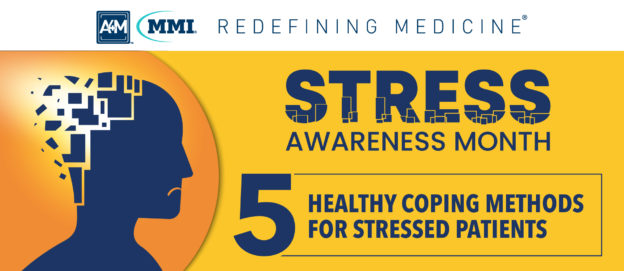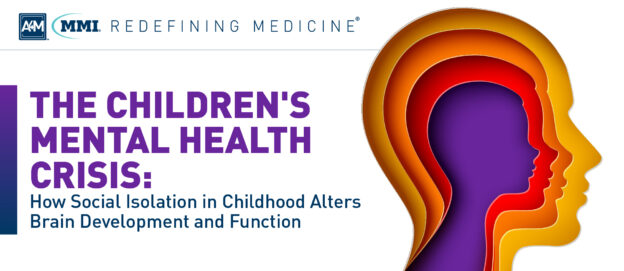April marks the beginning of Stress Awareness Month. This national observance aims to raise public awareness of the far-reaching, systemic consequences of chronic stress on physical and mental health.
While stress is a natural part of life, chronic stress and severe stress levels can have significant adverse effects when not managed effectively. In individuals with pre-existing genetic vulnerabilities to mental illness, high stress levels can actually trigger mental illness. Severe stress can greatly worsen symptoms for those who already have mental illness, especially when combined with common unhealthy coping strategies such as substance abuse, social withdrawal, and overworking.
Learning and implementing healthful coping skills is essential for supporting patients’ whole-body health. To successfully help manage stress year-round, it is essential to educate patients about wellness-focused coping methods that not only mitigate stress levels but also promote improved health.



